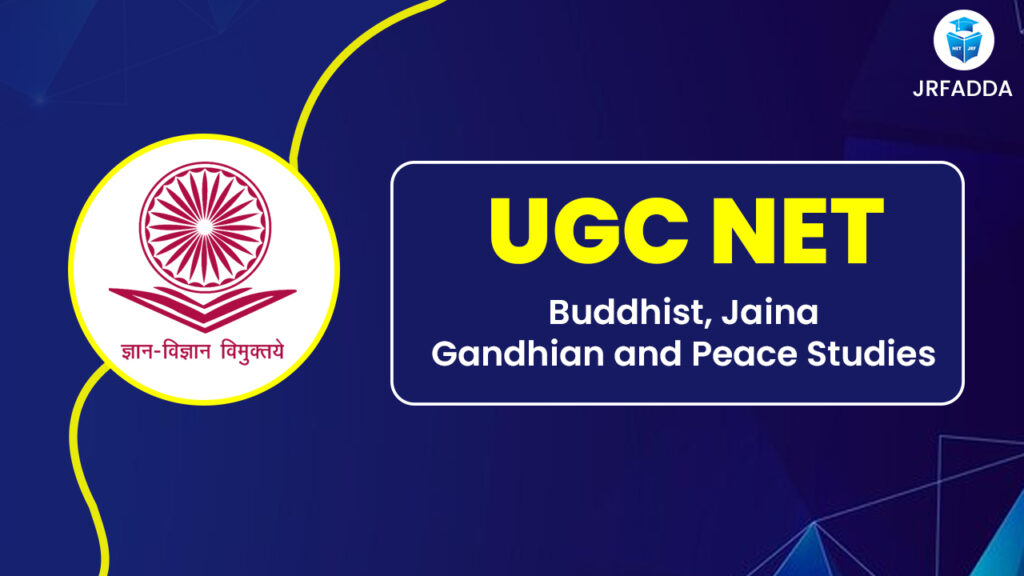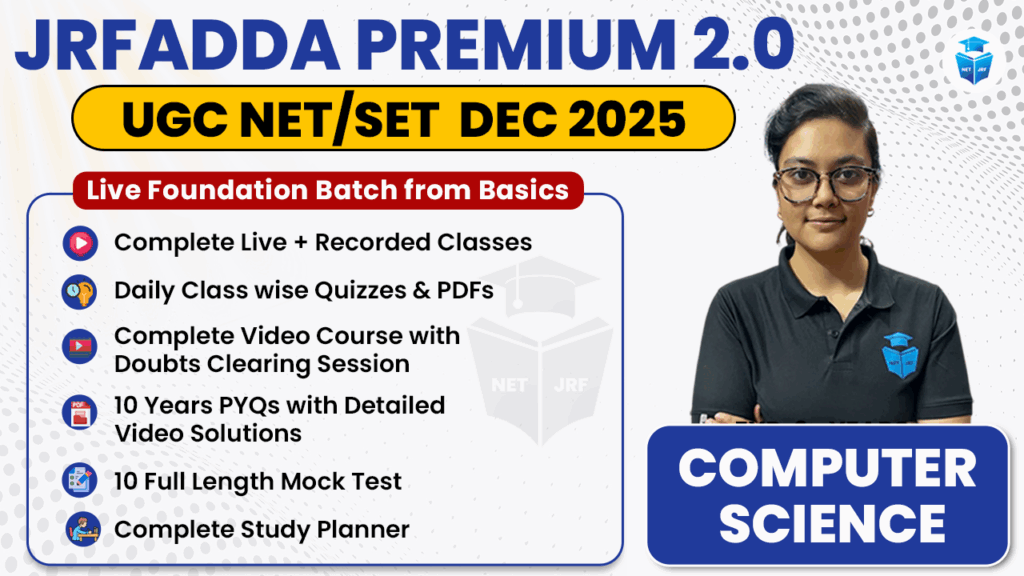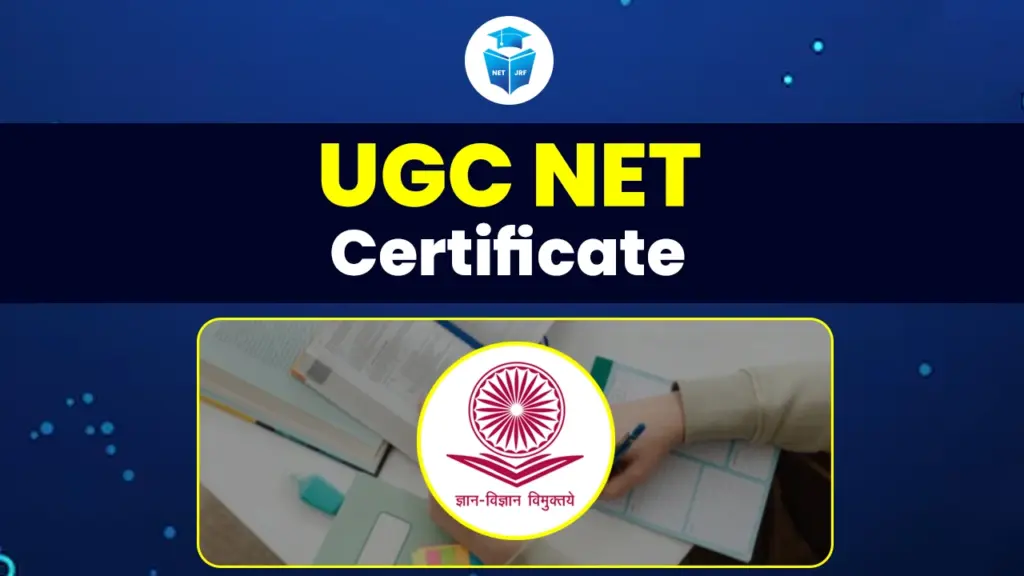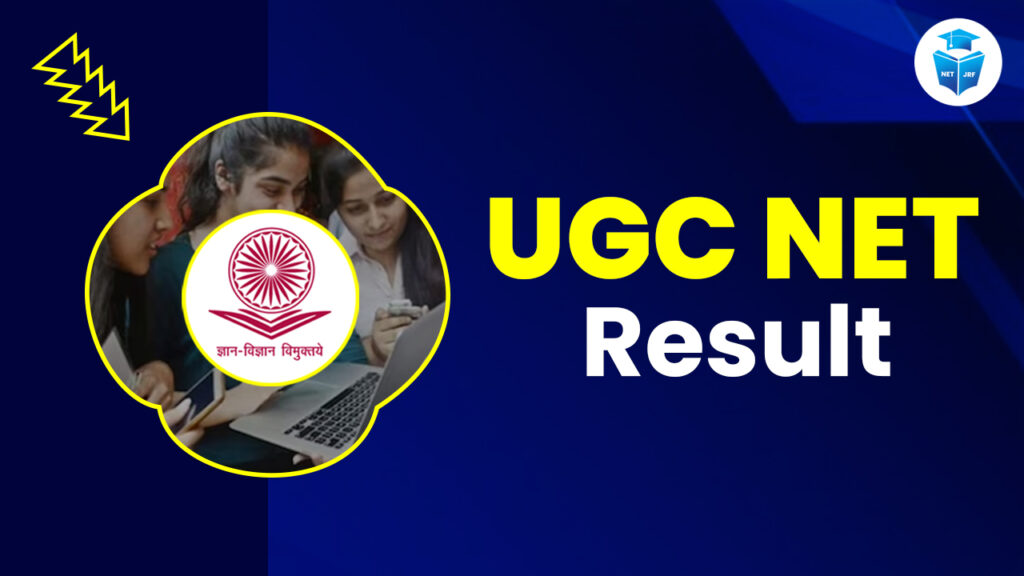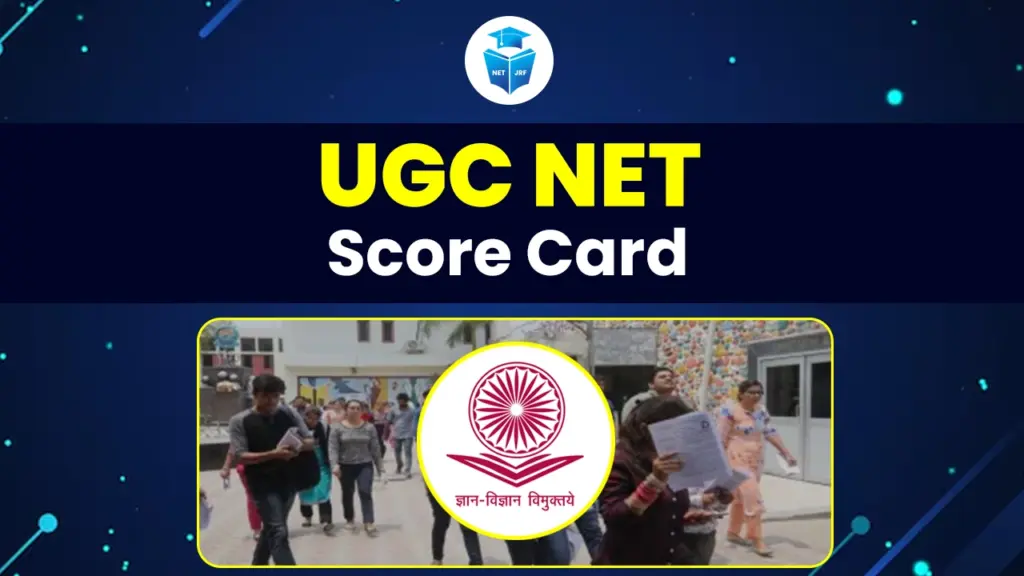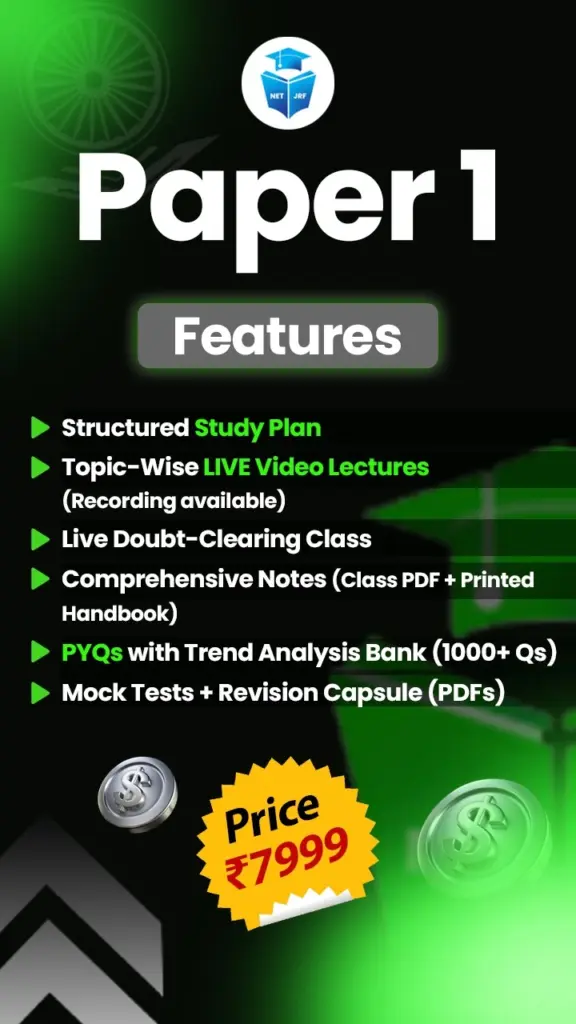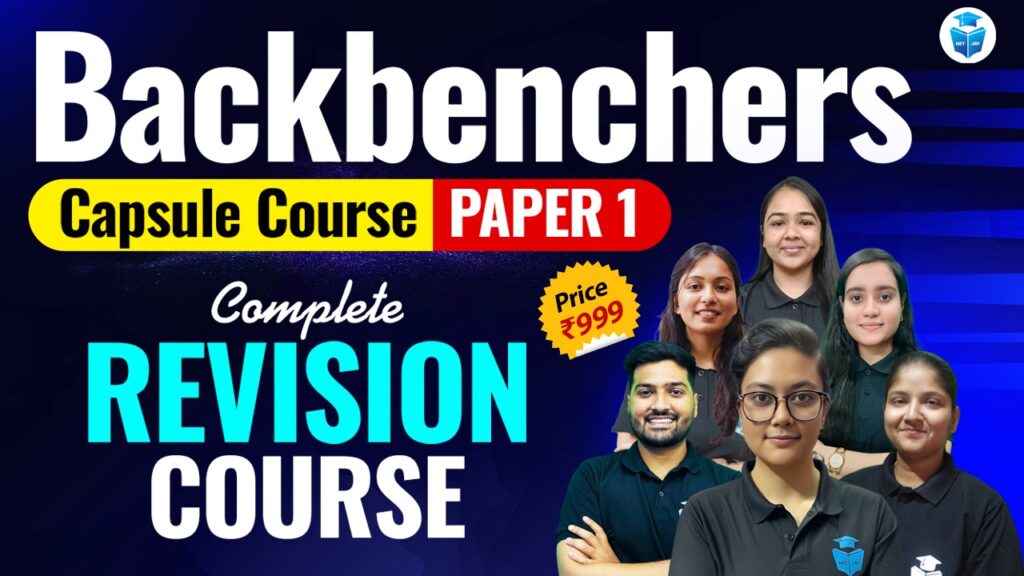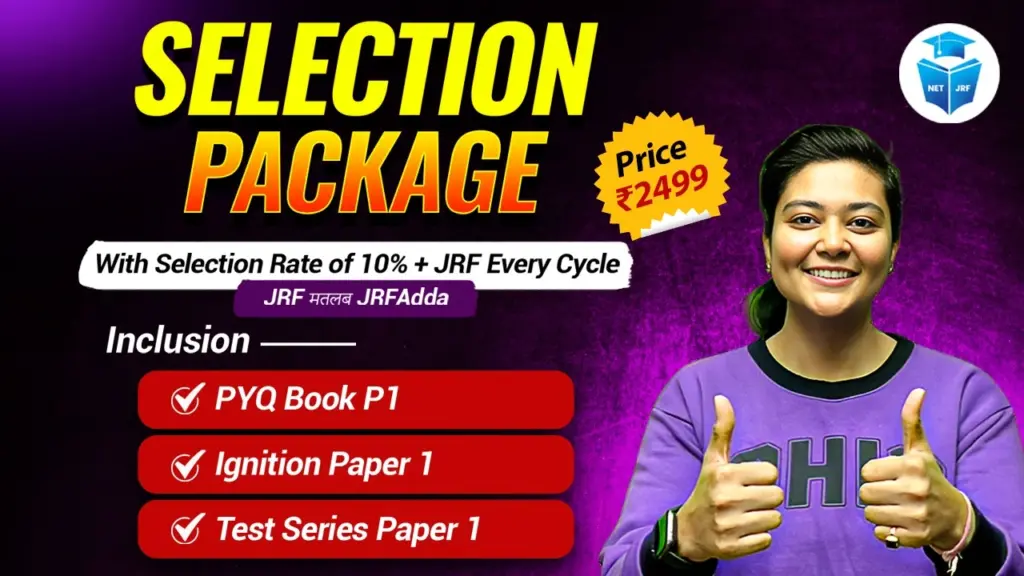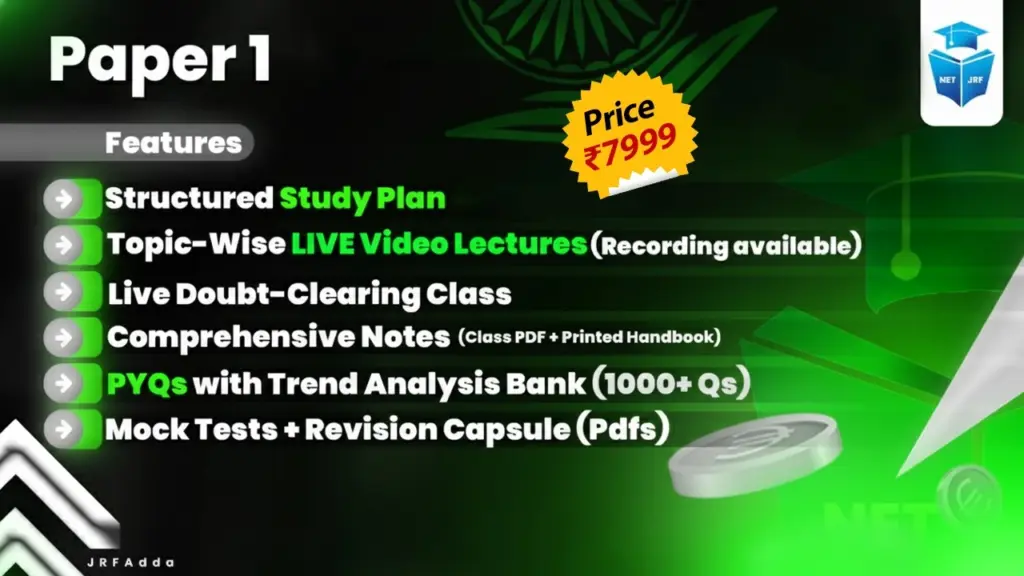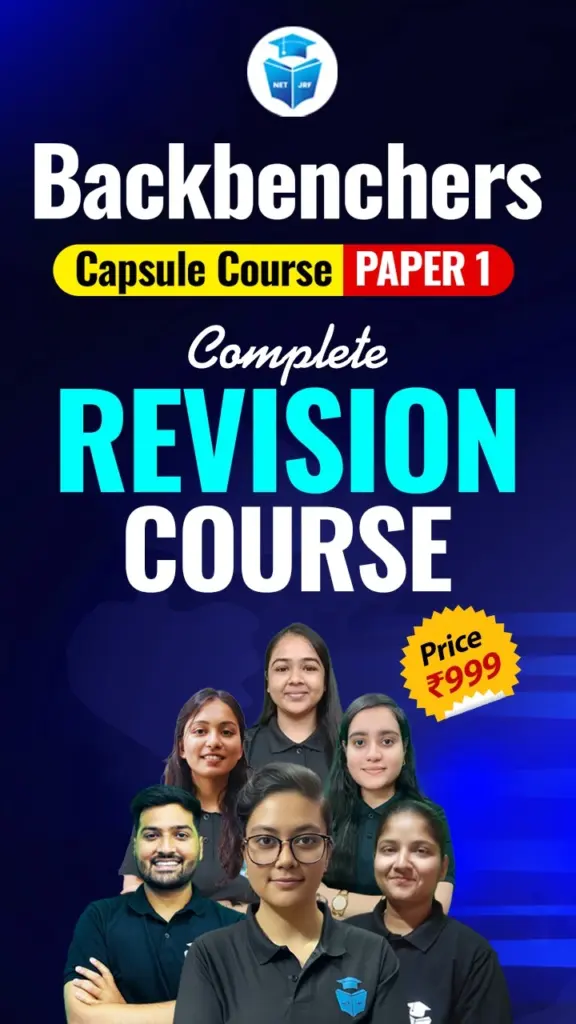UGC NET Buddhist, Jaina, Gandhian and Peace Studies 2025 is a national-level eligibility examination conducted by the National Testing Agency (NTA) on behalf of the University Grants Commission (UGC). The examination was held on 7 January 2026 in Shift 1, drawing candidates from across India who aspire to build careers in teaching, academic research, and social leadership rooted in Indian philosophical traditions.
This subject is specifically designed for scholars interested in Buddhism, Jainism, Gandhian philosophy, non-violence, ethics, peace studies, and conflict resolution. Qualifying the UGC NET makes candidates eligible for the post of Assistant Professor in universities and colleges nationwide. In addition, high-scoring candidates are awarded the prestigious Junior Research Fellowship (JRF), enabling them to pursue funded doctoral (PhD) research in Buddhist, Jaina, Gandhian, and Peace Studies.
UGC NET Buddhist, Jaina, Gandhian and Peace Studies 2025 Exam Analysis
The UGC NET Buddhist, Jaina, Gandhian and Peace Studies 2025 exam, for december cycle is sucessfully conducted on 7 January, 2026 was rated as moderate in difficulty by most candidates.
Paper 1 Shift 1 on 7 January 2026 presented a moderate difficulty level overall, with good attempts estimated at 40-45 out of 50 marks. Logical Reasoning emerged as the toughest section with 10-12 questions on syllogisms and fallacies, while Data Interpretation and ICT remained easier. The paper emphasized conceptual topics like NEP 2020, research methods, and Bloom’s Taxonomy, showing strong alignment with the syllabus and prior year patterns per the analysis.
Also Read: UGC NET Paper 1 Exam Analysis 2025 December
Paper 2 analysis reveals a comprehensive coverage of Buddha’s life/teachings, Mahavira’s doctrines, Gandhian principles, major scriptures like Tripitaka and Agamas, Ahimsa/non-violence, peace/conflict resolution, and interfaith harmony. Questions mixed factual recall on historical developments with analytical depth on contemporary Gandhian applications in global conflicts and non-violent methods. Tricky highlights included doctrinal comparisons and modern relevance of peace studies. Overall moderate difficulty demanded strong memorization plus conceptual clarity. Prepared candidates could achieve 50-60% scores via targeted PYQ practice
Overall, UGC NET Buddhist, Jaina, Gandhian and Peace Studies exam (Jan 7, 2026) was moderate.
Paper 1: Shift 1: 40-45 good attempts, tough logical reasoning, easy ICT/NEP 2020.
Paper 2: Factual Buddha/Mahavira/Gandhi recall + analytical Ahimsa/peace applications; 50-60% possible.
Also Read: UGC NET Exam Analysis 2025 December
What is UGC NET Buddhist, Jaina, Gandhian and Peace Studies?
UGC NET in Buddhist, Jaina, Gandhian and Peace Studies is a subject-specific examination that tests advanced-level knowledge in India’s ancient spiritual systems and their contemporary relevance. It examines a candidate’s grasp over key texts, doctrines, non-violence movements, ethical frameworks, and the philosophy of peace.
This interdisciplinary subject appeals to students of religious studies, philosophy, history, political science, and peace/conflict resolution.
Objectives of UGC NET Buddhist, Jaina, Gandhian and Peace Studies
- To assess postgraduate-level competence in Buddhist, Jaina, Gandhian philosophies and the discipline of peace studies.
- To determine eligibility for Assistant Professorships in Indian colleges and universities.
- To grant Junior Research Fellowships (JRF) for funded doctoral and postdoctoral research.
- To promote academic research in non-violence, ethical governance, social justice, and interfaith understanding.
- To strengthen education and scholarship in India’s rich heritage of peace and spiritual traditions.
Also Read: UGC NET Exam 2025
UGC NET Buddhist, Jaina, Gandhian and Peace Studies 2025 Key Highlights
| Component | Details |
| Exam Name | UGC NET Buddhist, Jaina, Gandhian and Peace Studies 2025 |
| Conducting Agency | National Testing Agency (NTA) |
| Exam Mode | Computer-Based Test (CBT) |
| Exam Frequency | Twice a year (June and December sessions) |
| Papers | Two (Paper I – General, Paper II – Subject Specific) |
| Total Questions | 150 |
| Maximum Marks | 300 |
| Exam Duration | 3 Hours (180 minutes) |
| Marking Scheme | +2 for each correct answer, no negative marking |
| Official Website | ugcnet.nta.nic.in |
UGC NET Buddhist, Jaina, Gandhian and Peace Studies Eligibility Criteria 2025
Educational Qualification:
Candidates must possess a postgraduate degree in Buddhist Studies, Jaina Studies, Gandhian Thought, Peace Studies, or allied fields such as Philosophy, Religious Studies, or Political Science. Final-year postgraduate students may also apply provisionally.
Minimum Marks Required:
- General / EWS / OBC-NCL / Third Gender: 55%
- SC / ST / PwD / Transgender: 50%
Age Limit:
- For Junior Research Fellowship (JRF): Maximum 30 years
- OBC-NCL: 3 years relaxation
- SC / ST / PwD / Women: 5 years relaxation
- For Assistant Professor: No age limit
Also Read: UGC NET Eligibility 2025
UGC NET Buddhist, Jaina, Gandhian and Peace Studies Exam Pattern 2025
The exam is conducted in a single session and consists of two compulsory papers:
Paper I – General Aptitude (Common for all subjects)
- Questions: 50
- Marks: 100
- Duration: Combined with Paper II
- Focus Areas: Teaching and Research Aptitude, ICT, Logical Reasoning, Data Interpretation, Higher Education System, and Environment.
Paper II – Subject-Specific (Buddhist, Jaina, Gandhian and Peace Studies)
- Questions: 100
- Marks: 200
- Duration: 3 hours total (with Paper I)
- Focus Areas: Doctrinal foundations, comparative philosophy, peace strategies, key texts and thinkers (e.g., Lord Buddha, Mahavira, Mahatma Gandhi), and their impact on contemporary society.
Marking Scheme:
+2 marks for each correct answer, with no negative marking.
UGC NET Buddhist, Jaina, Gandhian and Peace Studies Syllabus 2025
The syllabus is carefully designed to evaluate a comprehensive understanding of ancient Indian philosophical traditions and their modern implications.
Paper I Syllabus Includes:
- Teaching Aptitude
- Research Aptitude
- Communication and Comprehension
- Mathematical Reasoning
- Logical Reasoning
- Data Interpretation
- ICT
- People & Environment
- Higher Education System
Paper II Syllabus Includes:
- Fundamental doctrines of Buddhism and Jainism
- Buddhist canonical texts and Jaina Agamas
- Mahatma Gandhi’s philosophy: satya, ahimsa, sarvodaya, swaraj
- Non-violent movements and peace-building practices
- Ethical and metaphysical concepts in Indian traditions
- Relevance of Gandhian values in global politics and development
- Interreligious dialogue and comparative study
- Peace theory, conflict resolution, and global non-violence models
Download Syllabus PDF:
The full syllabus is available for download at the official NTA website under the subject code and syllabus section.
| UGC NET Buddhist, Jaina, Gandhian and Peace Studies Syllabus PDF |
UGC NET Buddhist, Jaina, Gandhian and Peace Studies Previous Year Question Papers
Practicing previous year papers is one of the most effective ways to prepare for UGC NET Buddhist, Jaina, Gandhian and Peace Studies.
| Year | Download Status |
| 2025 (December session) | Available Soon |
| 2025 (June session) | Download PDF |
| 2024 | Download PDF |
| 2023 | Download PDF |
| 2022 | Download PDF |
| 2021 | Download PDF |
| 2020 | Download PDF |
These question papers help in analyzing the exam trend, identifying key areas of focus, and improving time management and accuracy.
Career Scope After UGC NET Buddhist, Jaina, Gandhian and Peace Studies
Clearing UGC NET in this subject opens a wide range of academic and professional opportunities.
Academic Sector:
- Assistant Professor in universities and colleges across India
- Eligibility for Ph.D. admissions with JRF support
- Positions in departments of Philosophy, Religion, Political Science, and Peace Studies
- Participation in curriculum development and academic councils
Research Sector:
- Fellowships in ethical philosophy, non-violence studies, and Indian cultural heritage
- Opportunities with organizations such as the Indian Council of Philosophical Research (ICPR), Gandhi Peace Foundation, and various think tanks
- Collaborative research with interfaith and peace institutes
Government Sector:
- Positions in cultural ministries, policy think tanks, and commissions on peace and ethics
- Translator, ethics consultant, language officer, curriculum advisor
NGOs and International Organizations:
- Work in human rights organizations, conflict resolution NGOs, and peacebuilding bodies
- Promote Gandhian principles globally through advocacy, education, and media
Private and Media Sector:
- Academic content writer, philosophical editor, researcher
- Consultant roles in publishing, documentary production, and peace education platforms
Preparation Tips for UGC NET Buddhist, Jaina, Gandhian and Peace Studies
- Start early and allocate at least 4–6 months for thorough preparation.
- Understand the exam structure and break the syllabus into weekly goals.
- Refer to authentic sources such as NCERT books, IGNOU materials, and writings of Mahatma Gandhi, Ambedkar, and other key thinkers.
- Practice MCQs and mock tests regularly to build speed and accuracy.
- Analyze past papers for frequently repeated concepts.
- Join online forums or study groups for peer support and resource exchange.
Conclusion
UGC NET exam pattern for Buddhist, Jaina, Gandhian and Peace Studies provides a roadmap for strategic preparation. It tests candidates on general research aptitude and deep knowledge of philosophies advocating peace and non-violence. Familiarity with the pattern enhances exam readiness and performance. Qualifying this exam not only allows entry into academia but also fosters research that contributes to global peace and ethical scholarship.
UGC NET Buddhist, Jaina, Gandhian and Peace Studies FAQs
What is UGC NET Buddhist, Jaina, Gandhian and Peace Studies?
It is a subject-specific national eligibility test for scholars aiming to teach or research Indian philosophies like Buddhism, Jainism, Gandhian Thought, and Peace Studies.
Who is eligible for this UGC NET exam?
Anyone with a master’s degree in relevant fields such as Buddhist Studies, Gandhian Thought, or Philosophy can apply. Final-year PG students are also provisionally eligible.
What topics are covered in the syllabus?
The syllabus includes doctrines of Buddhism and Jainism, Gandhian philosophy, peace studies, ethical teachings, and conflict resolution models.
Can I get previous year question papers for this subject?
Yes, you can access past year papers on the official NTA website and leading exam preparation portals to understand question trends.
What are the career options after qualifying this UGC NET subject?
Career options include Assistant Professorships, Ph.D. fellowships, roles in cultural ministries, NGOs, research organizations, and publishing.

